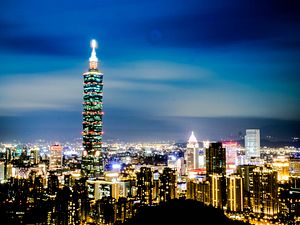Today, the island nation of Taiwan is under considerable international pressure. Taiwan has continued losing its dwindling number of diplomatic partners in the face of mainland China’s renewed offensives. Meanwhile, Taiwan’s international space in multilateral forums remains stunted. Taiwanese President Tsai Ing-wen has sought to address this problem in part by advancing the “New Southbound Policy” (NSP) to expand economic and cultural linkages in Southeast Asia. While this external effort is well-considered, Taiwan’s future lies not just in how it relates to the outside world. Instead, the strength of Taiwan’s democracy at home is arguably its greatest asset.
According to Freedom House, Taiwan ranks as one of the freest countries in the Asia-Pacific. But like any democratic nation, Taiwan must continue honing its democratic institutions and values. In this regard, addressing the exploitation of Southeast Asian migrant laborers presents a particularly important opportunity for the island to continue advancing the rights of its residents. The treatment of foreign workers is an issue that should be addressed, both for the strength of the NSP and the continuation of Taiwan’s democratic evolution. In a region and world struggling with democratic backsliding, it is imperative that Taiwan strives to maintain its exemplary level of democracy.
A Vulnerable Foreign Labor Force
Taiwan has struggled with domestic labor shortages and a decreasing birth rate since the 1990s. To overcome these trends, the Taiwanese government globalized its labor market, and the number of low-skilled workers grew exponentially. Today, over 670,000 low-skilled laborers from Southeast Asian countries are employed in Taiwan. In fact, the island has come to rely on Southeast Asian labor for supporting fundamental industries like elderly care and manufacturing. Taiwan’s dependence on Southeast Asia will increase in the coming decades given that foreign labor represents the only feasible means to mitigate its labor shortage.
The rights of foreign laborers who work in Taiwan temporarily without citizenship are governed by the Employment Service Act (ESA), which stipulates a three-year work limit for fields that tend to be dominated by Southeast Asian workers. These laborers must apply to work in Taiwan through brokerage agencies, burdening them with high fees that increase every time they must leave to re-enter the country. Migrant laborers are not allowed to transfer to different employers or form their own unions, though they can join pre-existing unions if they are accepted.
Those laborers who experience abuse are often unable to report to police due to fear of deportation, language barriers, or limited mobility — some employers have been known to confiscate employee IDs. In cases of female migrant laborers who are sexually abused by their employers, victims are often left to choose between either fleeing or enduring the abuse indefinitely. Each year between 2004 and 2016, between 3 to 4 percent of Taiwan’s Southeast Asian labor force fled from their place of employment. Currently, over 50,000 migrant laborer escapees remain unaccounted for.
Many Southeast Asian laborers also face deeply ingrained social discrimination. The term used to refer to Southeast Asian laborers (外勞) holds a connotation of lower social status, and the growth of Southeast Asian populations in some traditionally homogenous communities has sparked controversy among Taiwanese residents.
In addition, escaped laborers are often considered threats to national security. Such as the case for Yuan Guofei, a Vietnamese laborer that escaped from his employer, who was shot and killed by the Taiwanese police despite being unarmed. His death garnered little public attention.
While the ESA stipulates protections for laborers’ rights, enforcement is difficult due to the vulnerable nature of the victims. The Tsai administration made progress through recent revisions to the ESA, which increases punishments against those employers who abuse their power over laborers, but it remains to be seen if these revisions will be enough. Continued advocacy for migrant laborers’ rights by NGOs like the Taiwan International Workers’ Association (TIWA) is crucial to ensuring that the movement toward progress maintains momentum.
Recommendations for the Tsai Administration
The Tsai administration has taken concrete steps to improve the lives of Southeast Asian migrant laborers in Taiwan. In addition to revisions to the ESA, Taiwan’s Public Television Service has created special network segments to be broadcasted in Southeast Asian languages, which demonstrates to the Southeast Asians in Taiwan that they too hold a place within Taiwanese society. While progress has been made, there is still much work to be done to address the second-class treatment of many Southeast Asian migrants.
The Tsai administration should consider launching a public diplomacy campaign that emphasizes the fundamental and complementary role Southeast Asian workers play in Taiwan’s economy and society. The Ministry of the Interior and Ministry of Culture could help implement this media effort. In addition, migrant laborers deserve their own political voice in Taiwan and should be permitted to form their own unions. This could complement the work of NGOs like TIWA that have played a critical part in educating the public about the importance of migrant laborers and their rights. Finally, the Tsai administration should call for closer inspection of agencies and employers by the Ministry of Labor to ensure the enforcement of the ESA.
As part of the foundation of Taiwan’s economic revitalization, foreign laborers deserve to enjoy the rights guaranteed to their Taiwanese counterparts. With mainland China descending further into authoritarianism, strengthening Taiwan’s democracy is increasingly important. The defense of foreign workers represents more than just smart diplomacy — it is a moral choice that demonstrates Taiwan’s commitment to upholding the values that shaped the island into the beacon of Asian democracy that it is today.
Tabatha Anderson is a student at the University of Maryland, College Park.

































